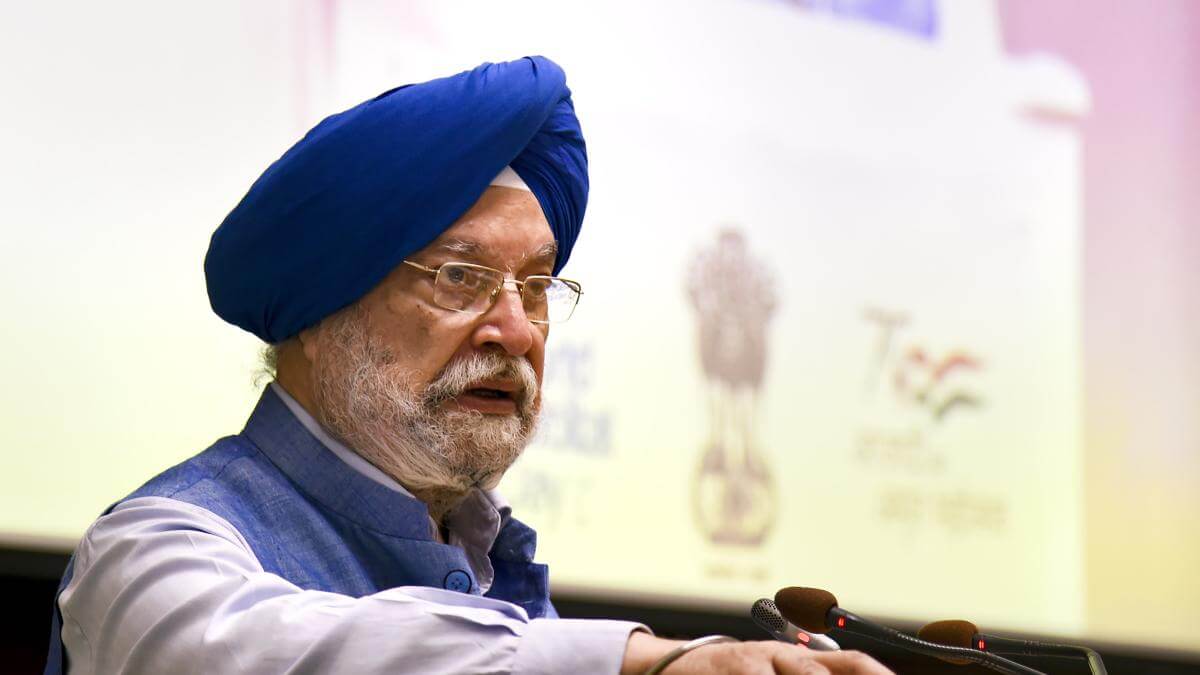Indian Petroleum Minister Hardeep Singh Puri said India is maintaining a “healthy dialogue” with Russia after its decision to revamp foreign stakeholders’ ownership of the Sakhalin-1 oil and gas project.
In an interview with Reuters, the Indian Minister said, “We’ll look at what is the state of play and what’s on offer.”
Russia recently seized American company Exxon Mobil’s 30 % stake in the project. In addition, Russian state-run company Rosneft will now decide whether foreign stakeholders can retain their stake in the project.
This is a part of the Kremlin’s larger strategy to seize foreign-owned stakes in its energy sector to pressurise Western countries to revoke sanctions against Russian companies and individuals.
In July, Putin issued a decree to take complete control over Sakhalin-2, endangering the stakes of American company Shell and Japanese companies Mitsui & Co and Mitsubishi Corporation.
The Sakhalin-1 project operates three oil fields on Russia’s eastern coast and uses unique technology to extract from some of the world’s longest wells.
Apart from Exxon Mobil, Japan’s Sodeco and India’s ONGC Videsh respectively have a 50% and 20% stake in the project. After the Russian government’s announcement, these companies will now have to approach Rosneft to file a request to maintain their stakes.
Interacted with prominent members of the vibrant Indian community from different walks of life including energy, medicine, finance, manufacturing & other sectors at India House in Houston today.@MEAIndia @cgihou @IndianEmbassyUS @PetroleumMin pic.twitter.com/t7VVEUMpS7
— Hardeep Singh Puri (@HardeepSPuri) October 11, 2022
Puri’s comments come shortly after he participated in a series of meetings with American energy officials. In Washington, he met with American Energy Secretary Jennifer Granholm and Energy Security Advisor Amos Hochstein.
Thereafter, he convened discussions with representatives of Exxon Mobil, oilfield service provider Baker Hughes, and natural gas producers. He also called for bids for offshore oil and gas exploration to access American companies’ technical knowledge and expand India’s offshore ethanol production and sulphur recovery.
However, he said, “For getting to green energy, you have to survive the present.” In this regard, he highlighted that India is in dialogue with Guyana, Brazil, and Columbia for the supply of crude oil and increasing investment for Indian oil companies.
A very productive meeting with Dr John Ardill of @exxonmobil. Discussed way forward for Exxon’s participation in 🇮🇳’s E&P sector. Exxon has devoted 25% of its supercomputing power to analyse Indian geological data & is poised to use its expertise to discover oil & gas in India. pic.twitter.com/5ptperJ8uQ
— Hardeep Singh Puri (@HardeepSPuri) October 12, 2022
Puri has also clarified that India has never been told not to purchase Russian oil.
In fact, he recently said that India will buy oil from “wherever it has to,” as it had not been asked to stop buying oil from any country, including Russia.
After his meeting with United States (US) Energy Secretary Granholm, Puri said the government’s primary responsibility is to ensure sufficient energy supplies for its citizens.
Puri highlighted that given India’s population, it must maintain a “clear” policy that focuses on “energy security and energy affordability.” In this regard, he said that India is increasing its energy imports from the US and will continue cooperation in green energy.
India has faced repeated warnings of “significant consequences,” particularly from the US, over its decision to purchase Russian oil but has stood firm on its ability to take independent decisions as a sovereign nation.
India increased its reliance on Russian oil since its regular suppliers in the Middle East diverted their supplies to Europe, which has been facing a severe energy crisis after Russia cut natural gas supplies.
As a result, India’s imports of Russian oil have grown by as much as 50 times since April, wherein it now comprises around 10% of India’s total crude oil imports. Before the war, Russian crude oil accounted for just 0.2% of India’s oil imports.
Russian oil imports to India dropped in June and July but once again surged by 18.5% in August, making Russia India’s second-largest crude supplier.
#WATCH | "...India will buy oil from wherever it has to for the simple reason that this kind of discussion can't be taken to consuming population of India...Have I been told by anyone to stop buying Russian oil?The answer is a categorical 'no'..," says Petroleum & Natural Gas Min pic.twitter.com/rgr0Abg9K0
— ANI (@ANI) October 8, 2022
Puri also maintained his non-committal stance on whether India would join the G7’s price cap on Russian oil prices to limit Moscow’s access to funds for its Ukraine invasion, saying, “If the Europeans come with a plan, let’s see how it evolves.”
Puri also said that India is “actively monitoring” the impact of OPEC+’s decision last week to slash oil production by 2 million barrels per day from next month. The Indian petroleum minister said that a global recession and a drop in oil demand are likely to be “unintended consequences” of the rise in oil prices that will follow the decision.
The OPEC+ announcement did not sit well with American officials either, with US President Joe Biden warning Saudi Arabia of “consequences.”. US Senate Foreign Relations Committee chair Bob Menendez, too, called for a “freeze” in military and diplomatic cooperation with Saudi Arabia over the decision.

